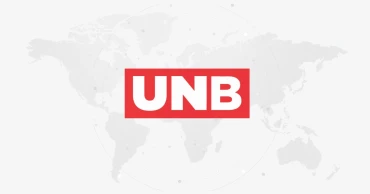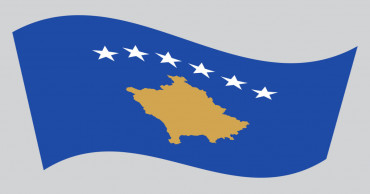Kosovo
Kosovo celebrates its 17th anniversary of Independence with grand reception in Dhaka
The Embassy of the Republic of Kosovo in Dhaka hosted a reception to commemorate the 17th Anniversary of the Independence of the Republic of Kosovo.
The event, held on Sunday, brought together distinguished guests, diplomats, government officials, business leaders, academics, and representatives from civil society.
Lulzim Pllana, ambassador of Kosovo to Bangladesh, addressed the gathering, reflecting on Kosovo’s journey since its independence and the strong bilateral relations between Kosovo and Bangladesh.
“The ties between Kosovo and Bangladesh are warm and growing, built on mutual respect and cooperation. We share histories of resilience and determination in overcoming struggles that resonate deeply with us," said the ambassador.
"111 years of Indian Cinema" celebrated in Dhaka
On this occasion, he extended his heartfelt wishes for International Mother Language Day and the great Language Martyr’s Day, celebrated on 21 February.
"Bangladesh’s unwavering commitment to independence and progress inspires admiration across the world, including in Kosovo," said Ambassador Pllana.
Over the years, the two countries have strengthened their relations through significant agreements, including the Memorandum of Understanding on Bilateral Consultations; General Memorandum of Understanding; and Agreement on Visa-Free Travel for diplomatic and official passport holders.
Further agreements in progress include cultural and economic cooperation and the elimination of double taxation, which will enhance our collaboration.
Since 2020, the Diplomatic Academy of Kosovo has provided Diplomatic School Training for junior Bangladeshi diplomats. Education and capacity building remain central to our partnership, the ambassador said.
Bangladesh Embassy in Mexico observes International Mother Language Day
The Kosova Scholarship Program, which commenced in 2024, offers educational opportunities for Bangladeshi students, and additionally, Bangladesh proudly participates in Kosovo’s annual Women, Peace, and Security (WPS) Forum organized by the office of the President of the Republic of Kosovo.
"A milestone in our relations was the First Foreign Office Consultations (FOC) held in Dhaka in 2022, paving the way for further cooperation," said Ambassador Pllana.
In his remarks, Adilur Rahman Khan, Adviser to the Ministry of Industries and the Ministry of Housing and Public Works, expressed appreciation for Kosovo’s achievements and emphasized the importance of strengthening cooperation in trade, investment, technology, education, and tourism.
“Bangladesh and Kosovo share a common struggle for independence and a strong commitment to democracy and development. Our partnership holds great potential for expanding collaboration in key sectors,” he stated.
The event showcased Kosovo’s achievements in economic development, regional and international cooperation, and its commitment to fostering stronger ties with Bangladesh.
Attendees had the opportunity to engage in discussions about future areas of cooperation and to celebrate the cultural exchange between the two nations.
Foreign Ministry holds event on International Mother Language Day
Guests enjoyed a vibrant evening filled with cultural performances, networking opportunities, and a display of Kosovo’s rich heritage.
The Embassy of Kosovo extended its sincere appreciation to all friends and partners who attended and contributed to making this event a success.
1 year ago
Ethnic Serbs in Kosovo gather in northern town after clashes with NATO-led peacekeepers
Hundreds of ethnic Serbs on Wednesday gathered in a town in northern Kosovo, days after clashes that injured 30 soldiers from a NATO-led peacekeeping force and over 50 Serbs, provoking fears of a renewal of the region's bloody conflicts and prompting the Western military alliance to send in additional troops.
The Serbs reiterated that they want the Kosovo special police and ethnic Albanian officials they call "fake" mayors to withdraw from northern Kosovo. The crowd then spread a huge Serbian flag.
Wednesday's protest outside the city hall in Zvecan, 45 kilometers (28 miles) north of the capital, Pristina, was peaceful as of late morning. On Monday, ethnic Serbs tried to storm municipal offices and fought with both Kosovo police and the peacekeepers.
Serbs are a minority in Kosovo, but a majority in parts of the country's north bordering Serbia. Many reject the Albanian-majority territory's claim of independence from Serbia. A former province of Serbia, Kosovo's 2008 declaration of independence is also not recognized by Belgrade.
The United States and the European Union recently have stepped up efforts to solve the dispute as the war rages in Ukraine. NATO said it will send 700 more troops to northern Kosovo to help quell violent protests after the clashes on Monday. The NATO-led peacekeeping mission, KFOR, currently consists of almost 3,800 troops.
U.S. Secretary of State Antony Blinken urged "all parties to take immediate actions to de-escalate tensions." Blinken described violence against soldiers from the multinational force known as KFOR as "unacceptable."
The confrontation first unfolded last week after ethnic Albanian officials, who were elected in a vote that Serbs overwhelmingly boycotted, entered municipal buildings to take office with an escort of Kosovo police.
When Serbs tried to block the officials, Kosovo police fired tear gas to disperse them. In Zvecan on Monday, angry Serbs again clashed first with the police and later with NATO-led troops who tried to secure the area.
Serbia put the country's military on its highest state of alert and sent more troops to the border with Kosovo.
While Washington and most EU nations recognize Kosovo's statehood, Belgrade has the backing of Russia and China in rejecting it. Western officials have sharply criticized both Kosovo's authorities for pushing to install the newly-elected mayors, and Serbs because of the violence.
"The Government of Kosovo's decision to force access to municipal buildings sharply and unnecessarily escalated tensions," said Blinken.
He urged Kosovo to use alternate locations for the new mayors and withdraw police from the vicinity of the municipal buildings. Serbia, he said, should lower its army's alert level and make sure KFOR troops are not attacked.
"Both Kosovo and Serbia should immediately recommit to engaging in the EU-facilitated Dialogue to normalize relations," said Blinken.
Serbia's Defense Minister on Wednesday told the state broadcaster RTS that the "security situation is highly risky because of one-sided, illegal, illegitimate decisions by the administration in Pristina."
"First of all, we should name it properly and try to define it as an occupation of the north of Kosovo by the Albanian administration in Pristina," said Vucevic.
Serbian officials have repeatedly warned that Serbia would not stand idle if Serbs in Kosovo come under attack.
The 1998-1999 war in Kosovo erupted when ethnic Albanian separatists launched a rebellion against Serbia, which responded with a brutal crackdown. The war ended after NATO bombing forced Serbia to pull out of the territory, and paved the way for the deployment of NATO-led peacekeepers.
2 years ago
NATO to send 700 more troops to Kosovo to help quell violent protests
NATO will send 700 more troops to northern Kosovo to help quell violent protests after clashes with ethnic Serbs there left 30 international soldiers wounded, the alliance announced Tuesday.
The latest violence in the region has stirred fear of a renewal of the 1998-99 conflict in Kosovo that claimed more than 10,000 lives, left more than 1 million people homeless and resulted in a NATO peacekeeping mission that has lasted nearly a quarter of a century.
The clashes grew out of a confrontation that unfolded last week after ethnic Albanian officials elected in votes overwhelmingly boycotted by Serbs entered municipal buildings to take office. When Serbs tried to block them, Kosovo police fired tear gas to disperse the crowd.
Also Read: 25 NATO-led peacekeepers injured in Kosovo in clashes with Serbs outside municipal building
More violence followed on Monday when Serbs clashed with police and NATO peacekeepers.
NATO Secretary-General Jens Stoltenberg said an additional reserve battalion would be put on high readiness in case additional troops are needed.
"These are prudent steps," said Stoltenberg, who made the announcement in Oslo after talks with the Norwegian prime minister.
The NATO-led peacekeeping mission in the region is known as KFOR and currently consists of almost 3,800 troops.
Also Tuesday, KFOR's multinational peacekeepers used metal fences and barbed-wire barriers to reinforce positions in a northern town that has become a hot spot. The troops sealed off the municipal building in Zvecan, where unrest on Monday sent tensions soaring.
A former province of Serbia, Kosovo's 2008 declaration of independence is not recognized by Belgrade. Ethnic Albanians make up most of the population, but Kosovo has a restive Serb minority in the north of the country bordering Serbia.
Stoltenberg condemned the violence and warned that NATO troops would "take all necessary actions to maintain a safe and secure environment for all citizens in Kosovo."
He urged both sides to refrain from "further irresponsible behavior" and to return to EU-backed talks on improving relations.
The United States and most European Union nations have recognized Kosovo's independence from Serbia while Russia and China have sided with Belgrade. China on Tuesday expressed its support for Serbia's efforts to "safeguard its sovereignty and territorial integrity," and Moscow has repeatedly criticized Western policies in the dispute.
In response to the confrontation last week, Serbia put the country's military on the highest state of alert and sent more troops to the border with Kosovo. The Serbs protested again Monday, insisting that both ethnic Albanian mayors and Kosovo police must leave northern Kosovo.
The confrontations worsened when Serbs attempted to enter the municipal offices in Zvecan, 45 kilometers (28 miles) north of the capital, Pristina. They clashed first with Kosovo police and then with the international peacekeepers.
In a video message issued Tuesday evening, Kosovo Prime Minister Albin Kurti said the mayors elected on April 23 "are the only ones who have the legitimacy to be at the municipal buildings and to the citizens' service."
Instigators of the violence have been identified, according to the prime minister, who named some Serb businessmen who oblige their employees to protest.
"In Kosovo, power is won through elections, not with violence and crime," he said.
The United States and the EU recently stepped up their efforts to negotiate an agreement between Serbia and Kosovo, fearing instability as Russia's war rages in Ukraine. The EU has made it clear to both Serbia and Kosovo that they must normalize relations if they're to make any progress toward joining the bloc.
"We have too much violence in Europe already today. We cannot afford another conflict," the EU's foreign policy chief, Josep Borrell, told reporters Tuesday in Brussels.
As a first step to easing tensions, he said, Kosovo police should suspend the operation focusing on municipal buildings in the north, and violent protesters should "stand down."
In response to the recent unrest, NATO has decided to increase its KFOR troops with the deployment of "operational reserve forces" for the Western Balkans, a statement said, without specifying a number. Another unit will be on standby "to be ready to reinforce KFOR if necessary."
A statement issued Tuesday by KFOR said 30 soldiers — 11 Italians and 19 Hungarians — were hurt, including fractures and burns from improvised explosive incendiary devices.
Three Hungarian soldiers were "wounded by the use of firearms," but their injuries were not life-threatening, the statement added.
Serb officials said 52 people were injured, including three seriously. Four protesters were detained, according to Kosovo police.
"Both parties need to take full responsibility for what happened and prevent any further escalation, rather than hide behind false narratives," KFOR commander Maj. Gen. Angelo Michele Ristuccia said.
Belgrade and Pristina have blamed each other for the escalation.
Meanwhile, ambassadors from the so-called Quint countries — France, Germany, Italy, the United Kingdom and the U.S. — met Monday with Kurti in Pristina and on Tuesday with Serbian President Aleksandar Vucic in Belgrade.
Vucic later also met with the ambassadors in Serbia of Russia and China.
In a statement from his office, Vucic expressed "immense dissatisfaction and strong concern" over what he described as international "tolerance" of Kurti's actions that fueled violence against Serbs.
Urgent measures to guarantee the security of the Serbs in Kosovo are a precondition for any future talks, Vucic insisted.
Kurti has thanked KFOR troops for "valiant action to preserve peace in the face of violent extremism."
Russia and China both have sharply criticized Western backing for Kosovo's independence. Russian President Vladimir Putin often has cited the "precedent" of NATO bombardment of Serbia in 1999 to justify his unlawful annexation of parts of Ukraine.
The conflict in Kosovo erupted in 1998 when separatist ethnic Albanians rebelled against Serbia's rule, and Serbia responded with a brutal crackdown. About 13,000 people, mostly ethnic Albanians, died.
NATO's military intervention in 1999 eventually forced Serbia to pull out of the territory and paved the way for the establishment of the KFOR peacekeeping mission.
2 years ago
Serbia, Kosovo leaders weigh EU proposals to improve ties
The leaders of Serbia and Kosovo are holding talks on Monday on European Union proposals aimed at ending a long series of political crises and setting the two on the path to better relations and ultimately mutual recognition.
Tensions have simmered between Serbia and its former territory since Kosovo unilaterally broke away in 2008; a move recognized by many Western countries but opposed by Serbia, with the backing of Russia and China.
Recently, those tensions flared over seemingly trivial matters like vehicle license plate formats, or the arrest of an ethnic Serb police officer, triggering renewed concern among Western leaders that a new Balkan conflict might break out just as Russia’s war in Ukraine enters its second year.
At meetings in Brussels, Serbian President Aleksandar Vucic and Kosovo Prime Minister Albin Kurti are expected to discuss ways to put the European proposals into action. Both leaders have already discussed the plan, which hasn't been made public, and EU officials are confident of progress.
A senior EU official said before the talks that “we need to break the vicious circle of crisis.” He said the proposals are “not the end of the road” when it comes to normalizing ties between Belgrade and Pristina, but that given recent tensions, the EU plan is the “maximum achievable at this point.”
The official briefed reporters on the condition that he not be named because of the highly sensitive nature of the meetings. Previous talks between Vucic and Kurti have degenerated into arguments and mutual recrimination, but this time both leaders have already endorsed the proposals “in principle,” he said.
Vucic said Sunday, before the meetings supervised by EU foreign policy chief Josep Borrell, that he’s “ready to work on the concept and implementation of the proposed plan with clearly defined limitations.”
Also Read: Greece plane crash: Cargo aircraft was carrying weapons to Bangladesh : Serbian minister
He didn't specify the “limitations,” but he has repeatedly said that they include the refusal to recognize Kosovo as an independent state as well as agree to it becoming a U.N. member.
The EU has mediated negotiations between Serbia and Kosovo since 2011, but few of the 33 agreements that have been signed were put into action. The EU and the U.S. have pressed for faster progress since Russia launched a full-scale invasion of Ukraine last year.
Earlier this month, hundreds of Serbian nationalists gathered in Belgrade to demand that Vucic reject the EU plan and pull out of the talks.
Shouting “Treason” and carrying banners reading “No surrender,” the right-wing protesters blocked traffic as they gathered near the Serbian presidency building. The protesters are also strongly pro-Russia, and one banner read: “Betrayal of Kosovo is betrayal of Russia!”
In recent months, U.S. and EU envoys have visited Pristina and Belgrade regularly to encourage them to accept the new proposals, and the two leaders met with senior EU representatives on the sidelines of a major security conference in the German city of Munich earlier this month.
3 years ago
Bangladesh sees potential for cooperation in expanding digital economy with Kosovo
State Minister for ICT Division Zunaid Ahmed Palak has said there is a lot of potential for partnership and cooperation with Kosovo in the areas of e-commerce, online marketplaces and online payment gateways.
“We are connected and dependent in this globalised world. The future lies in planning today for an inclusive and sustainable digital economy. We all must be on this journey together,” he said.
The state minister said cooperation and partnership with software development companies and IT outsourcing in Kosovo could be an excellent opportunity for Bangladesh to start a mutual collaboration.
“If you want to go fast and far, innovate together,” he said, quoting Prime Minister Sheikh Hasina, and emphasised working together to build a better world.
The state minister was speaking at a reception hosted by Kosovo Ambassador to Bangladesh Güner Ureya and his wife Umeri-Ureya on the occasion of the 15th Anniversary of the Independence of Kosovo held Sunday night at a hotel in Dhaka.
Palak said Bangladesh has a strong commitment to fostering friendship and cooperation with all the nations.
Ambassador Güner said despite many challenges and difficulties, Kosovars are immensely proud of the progress of their country and people.
After the liberation, with the support of the majority of the international community, including Bangladesh, Kosovo had a transitional period of fewer than nine years, he said, mentioning that Kosovo declared its independence on February 17, 2008.
“The Republic of Kosovo, the youngest country in Europe, has advanced remarkably in every area over the past 15 years. Today we have a functional, prosperous, stable and multi-ethnic state with a diverse society and steadily growing economy,” said the ambassador.
He hoped that his beautiful country would be recognised by all South Asian countries.
“We have good dialogue with some countries which still don't recognise us, but this is not enough. We deserve and need official recognition. For example, Bangladesh, one of the South Asian countries, as well as Pakistan and the Maldives recognised us and now we have a friendly and very close relationship with them,” said the envoy.
He said they also want to establish diplomatic relations and develop cooperation with other South Asian countries, such as India, Nepal, Sri Lanka and Bhutan.
Despite difficulties and challenges, he said, Kosovo will continue to strengthen itself, contribute to regional peace, integrate into Euro-Atlantic structures, and move forward as a respected entity of the international community.
Current and former diplomats, senior officials from the ministry of foreign affairs and business leaders were present at the event.
Read more: Kosovo says its excellent relation with Bangladesh a model
3 years ago
Kosovo says its excellent relation with Bangladesh a model
The relations between Bangladesh and Kosovo can serve as a good example for countries that are still reluctant to have formal relations with Kosovo, said the country’s embassy here on Thursday.
"Relations between the two countries are developing rapidly and can be considered friendly and excellent," said the Embassy of the Republic of Kosovo in Dhaka celebrating its 14th anniversary of Independence.
For a short time, the Embassy said they initiated cooperation in different fields with Bangladesh.
With the engagement of two parties, bilateral trade is increasing day by day, the cooperation between our institutions is at a satisfactory level, Bangladeshi students for the first time in history started to choose Kosovo as their destination for high education, Kosovar companies started to employ Bangladeshi personnel, it sad.
Read: Bangladesh, Australia eye larger trade, investment ties
Kosovo said they will continue demonstrating the seriousness of being a functional State and reliable partner with all its institutions as an international legal entity.
As a young country, Kosovo set out the goal for more social peace, more freedom, more justice, and more commitment to sustainable development.
"Despite some difficulties the citizens of the Republic of Kosovo are immensely proud of the progress of the country since its independence," said the Embassy in a message.
Kosovo has many reasons to be hopeful for a better future, it said.
"This year in our economic growth percentage reached two digits. During these years, besides State and institutional level and private sector`s achievements we are also proud of the success of our people in every field, especially in arts and sports," said the embassy.
The Republic of Kosovo is committed to establish strong democracy inside and having peaceful and constructive relations with all the international legal entities.
4 years ago
Kosovo governing party loses capital in runoff mayoral vote
Kosovo's governing party suffered a heavy blow Sunday by losing the capital's mayoral post in runoff municipal elections held in almost two-thirds of the country after center-right opposition parties dominated in the first round.
About 1.26 million voters in the small Balkan nation were eligible to cast ballots in the second round to elect mayors in 21 out of 38 municipalities. Preliminary turnout was 38% Sunday.
The voting was peaceful. Police reported minor incidents not affecting the vote.
The governing left-wing Self-Determination Party, or Vetevendosje!, of Prime Minister Albin Kurti lost the race in Pristina where it had nominated its former health minister, Arben Vitia. It won in four other communes, one more than 2017.
READ: Bangladesh, Kosovo explore investment, trade opportunities
The center-right Democratic League of Kosovo won in Pristina. The league, the center-right opposition Democratic Party of Kosovo of former independence fighters and the Alliance for Kosovo’s Future together won 21 mayoral seats.
The Srpska List party of Kosovo’s ethnic Serb minority, which is close to the Serbian government in Belgrade, won one more mayoral post, adding to nine it won in the first round in the northern Kosovo districts.
Dukagjin Gorani, an independent analyst, said a landslide loss for the governing party could have a negative impact “on the overall legitimacy of both the political party and the government.”
“One might also expect early parliamentary elections, sometimes next year,” Gorani added.
READ: Kosovo soccer federation head sentenced to 9 months in jail
A European Union team was monitoring the election.
Kosovo, which has a majority ethnic Albanian population, declared independence from Serbia in 2008. Serbia has not recognized the move.
4 years ago
Bangladesh, Kosovo explore investment, trade opportunities
Bangladesh and Kosovo have discussed the possibilities of investment and development of trade relations by signing the Avoidance of Double Taxation Treaty.
The two countries also discussed the ongoing Covid-19 crisis and vaccine issue, ease of visa for diplomatic and official passport holders, cultural exchange, and people-to-people connectivity.
President of Kosovo Dr Vjosa Osmani-Sadriu has sought Bangladesh's support for Kosovo’s accession in the United Nations (UN) and other international forums.
Also read: Bangladesh, Kosovo sign MoU; plan to boost bilateral ties
Bangladesh Ambassador Md Mosharraf Hossain Bhuiyan presented his credentials to the President of Kosovo at the office of the President in Prishtina recently and discussed the issues of mutual cooperation.
The Ambassador mentioned the similar history of struggle for independence for both countries and how the people of Bangladesh had stood against all odds under the leadership of the Father of the Nation Bangabandhu Sheikh Mujibur Rahman.
He said Bangladesh is always in support of Kosovo as a good friend.
During the meeting, the President congratulated the Ambassador on his new appointment as non-resident Ambassador of Bangladesh to Kosovo.
Bangladesh Ambassador conveyed to the President the sincere greetings and best wishes from President Md. Abdul Hamid and Prime Minister Sheikh Hasina.
Also read: PM for exploring avenues for Bangladesh-Kosovo cooperation
He informed the President about the socio-economic developments taking place in Bangladesh under the leadership of the Prime Minister of Bangladesh and briefed him about commendable achievements in economic and social sectors of Bangladesh.
At the end of the meeting, the President of Kosovo conveyed her best wishes to the President of Bangladesh and the Prime Minister.
4 years ago
PM for exploring avenues for Bangladesh-Kosovo cooperation
Prime Minister Sheikh Hasina on Tuesday stressed the need for exploring various avenues for greater cooperation between Bangladesh and Kosovo.
6 years ago
Kosovo's new parliament elects speaker, no Cabinet in sight
Kosovo's new parliament on Thursday held its first session with no agreement on a government in sight.
6 years ago

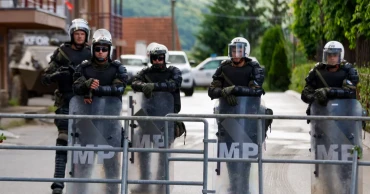
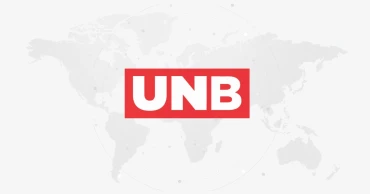
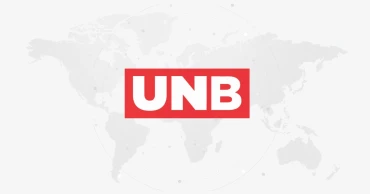
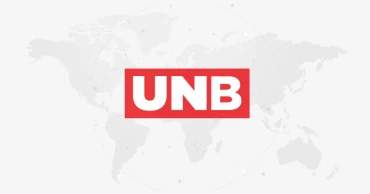

.jpg)

